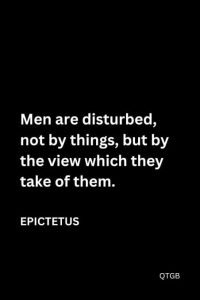How Your Mind Tricks You: Cognitive Errors
Back in my first year of university I attended a conference by a well known counsellor and mentor. I had been following them and wanted to connect. This conference was the perfect opportunity to do so. As the talk ended, I sat up straighter in my seat ready to ask a question. But I couldn’t. My thoughts got the better of me and I spiraled.
What if I stutter when speaking? What will my friends think? I’ll embarrass myself. What if the speaker asks me a follow up question and I am unable to reply back? Maybe, my question is not good enough and I will make a bad impression on the speaker and audience.
The negative thoughts continued one after the other, each thought promising a bad ending. That day my hand did not go up. The conference ended, the speaker left and I missed an opportunity. Sadly, that is not the only moment in my life where I lost an opportunity because of my negative thought patterns. And perhaps, you can agree with me.
Cognitive Errors

Image source: This Grandpa Blogs
What are they?
Negative thoughts that are false are called cognitive errors. They may occur because of going through negative life experiences which shape our thoughts in a negative manner. We have multiple kinds of cognitive errors. The example above shows catastrophizing.
Catastrophizing
Catastrophizing is a cognitive error that makes you think you are in a worse situation than you actually are. You will think of the worst-case scenario even if there is no evidence to back up the negative thought.
🧠 If I ask the wrong question, I will make a bad impression. Everyone will make fun of me and I will never recover from this situation.
Overgeneralization
Overgeneralization happens when you think every situation will end in the same negative manner as the result of one situation was negative.
🧠 I was unable to connect with the speaker today, I will never be able to do so with anyone anywhere.
Mind Reading
Mind reading happens when you think you know what the other person is thinking. This is usually in a negative way and without any evidence.
🧠 She didn’t smile at me today. She probably doesn’t like me anymore.
These are only a few cognitive errors. There are many more. Now, I want you to reflect on your life and think if you are using any of these in your daily life situations. You need to stop, pause and reflect. I know, it is easier said than done! But awareness is a step towards improvement.
How to fight cognitive errors?
- Stop, pause and reflect.
- Ask yourself. Has this ever happened in the past? What evidence can I give for this thought?
- Reframe the thought. Shift your cognitive error from negative and unrealistic to positive and realistic. Instead of, ‘She probably hates me now’. Try , ‘She may be busy and didn’t see me’.
- Prove your cognitive error wrong. Talk to your friend and ask if she hates you. Or raise your hand and ask your question. See what happens next. I know this is difficult but it will give you solid evidence that your thoughts are wrong.
- Remind yourself. You can write down in your journal that your cognitive error was false. This way you can go back to your journal when the same cognitive error shows up again.
Final Takeaways
Just remember your thoughts are not an accurate representation of who you are and your abilities. Oftentimes, they are simply false. Realize this. Don’t let your mind trick you into self-doubt. Don’t let it take away opportunities from you. Don’t allow your cognitive errors to stop you from growth.
Lastly, If you found this post helpful share it with someone who also suffers from cognitive errors. Comment below and let us know which cognitive errors you find in yourself.
References:
Stanborough, R. J. (2022, October 25). What are cognitive distortions and how can you change these thinking patterns? Healthline https://www.healthline.com/health/cognitive-distortions
